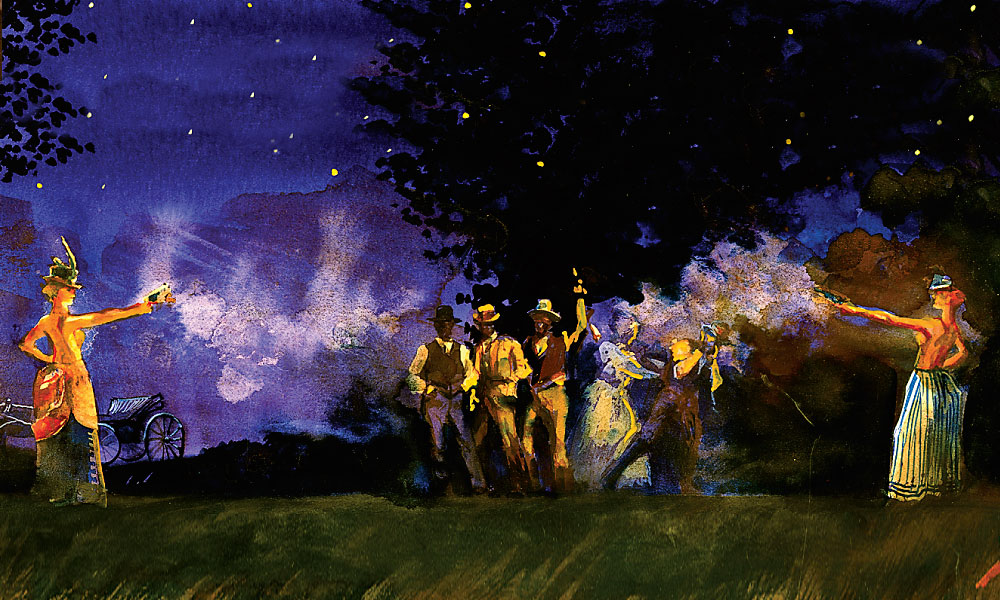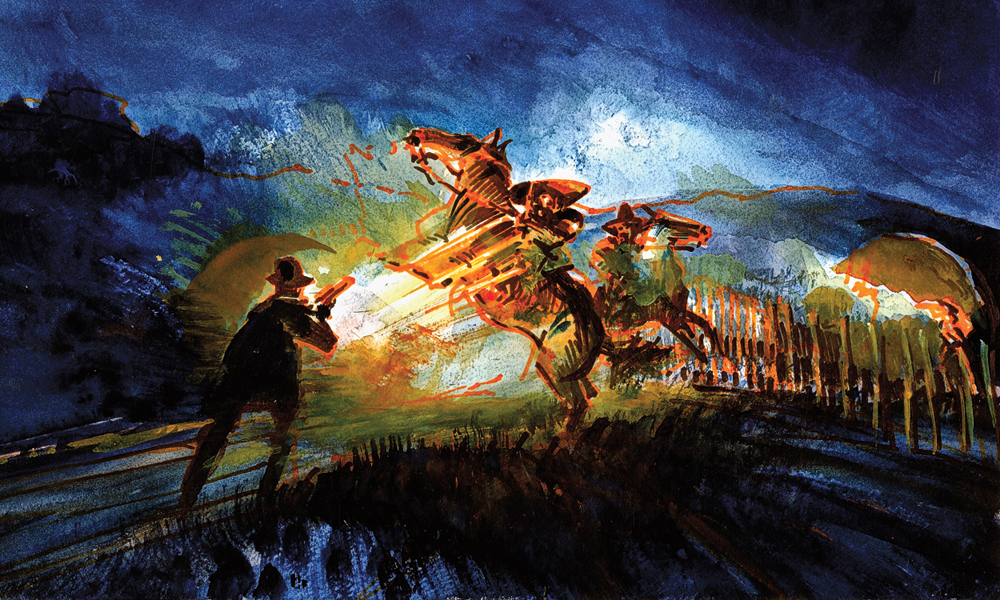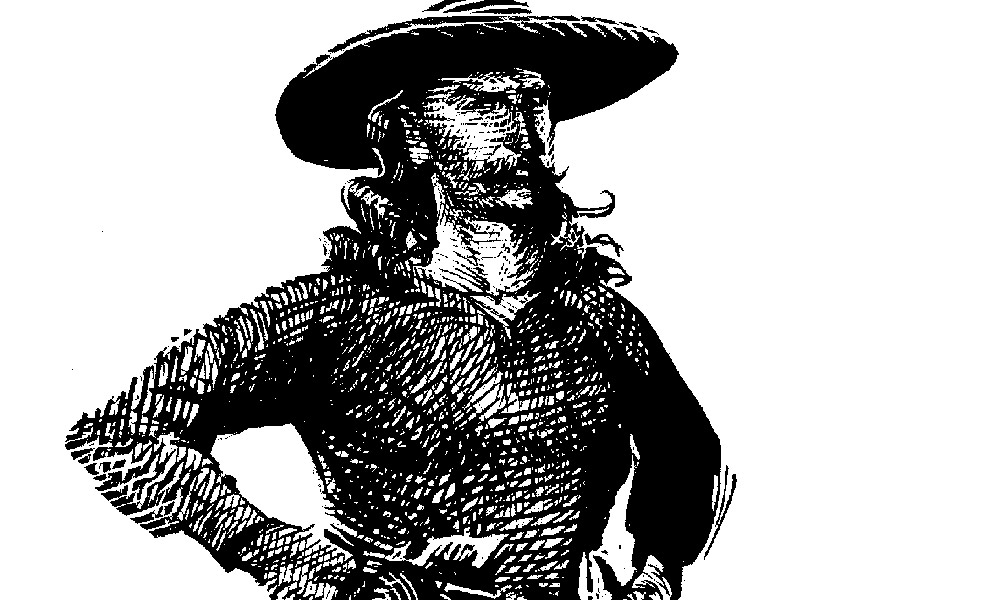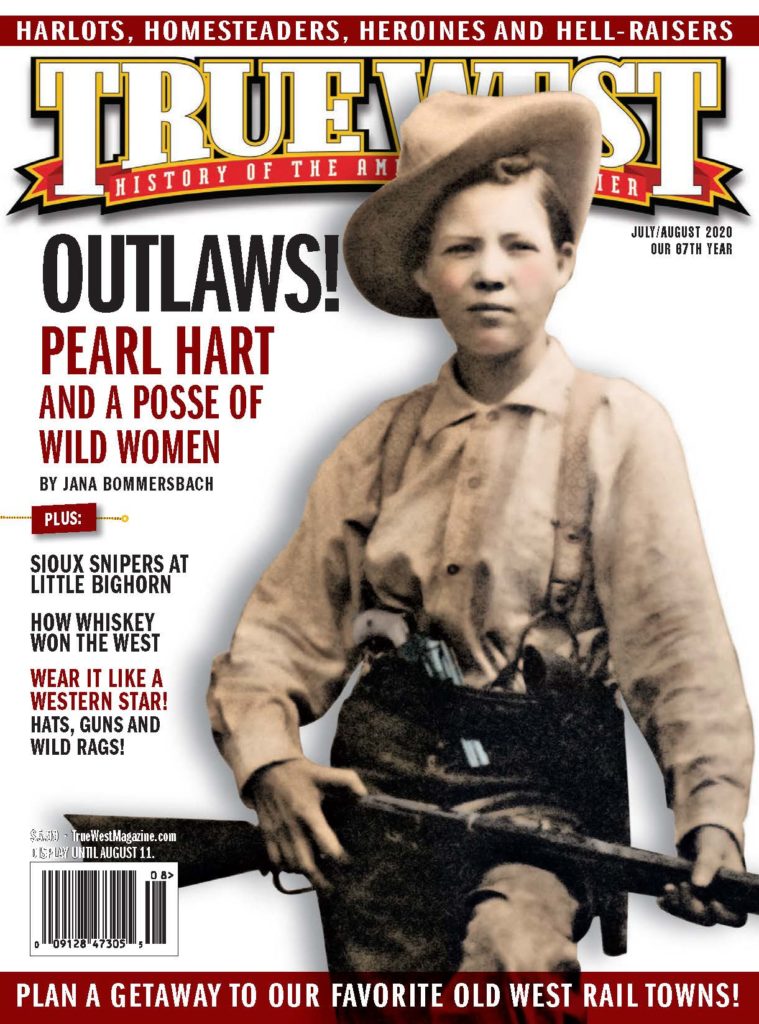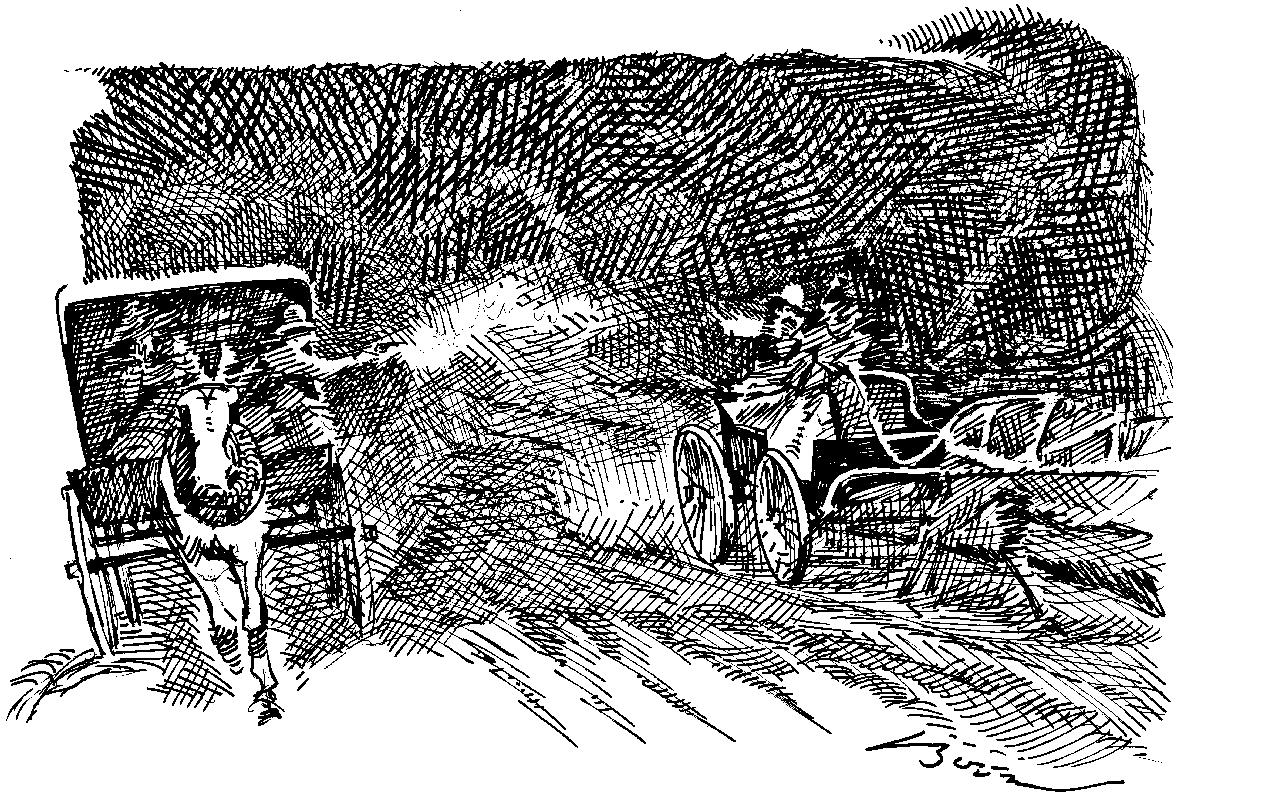
– Illustrations by Bob Boze Bell –
August 24, 1877
A wild picnic is in progress just outside the city limits of Denver, Colorado. The notorious brothel owner, Mattie Silks, is among the party crowd. She is with her “kept man,” Corteze Thomson, a handsome, fleet-footed gambler.
After numerous rounds of drinking games and bawdy fun, Mattie notices a voluptuous business rival, Katie Fulton, displaying an extreme amount of affection toward her man. Words are exchanged and threats are made. Neither soiled dove backs down.
A duel is suggested and agreed to, with Cort acting as Mattie’s second and Sam Thatcher as a second for Katie. Pistols are produced. To facilitate better aim, both women strip to the waist. In classic dueling fashion, the two women step off the required paces, turn and fire.
In the twilight, a cry is heard, and a body falls to the ground. Everyone rushes forward through the billowing gunsmoke to see which queen of the demimonde is still standing. To the crowd’s, and perhaps the shooter’s, surprise, both prostitutes are still on their feet. Cort, however, writhes on the ground with a bullet in his neck.
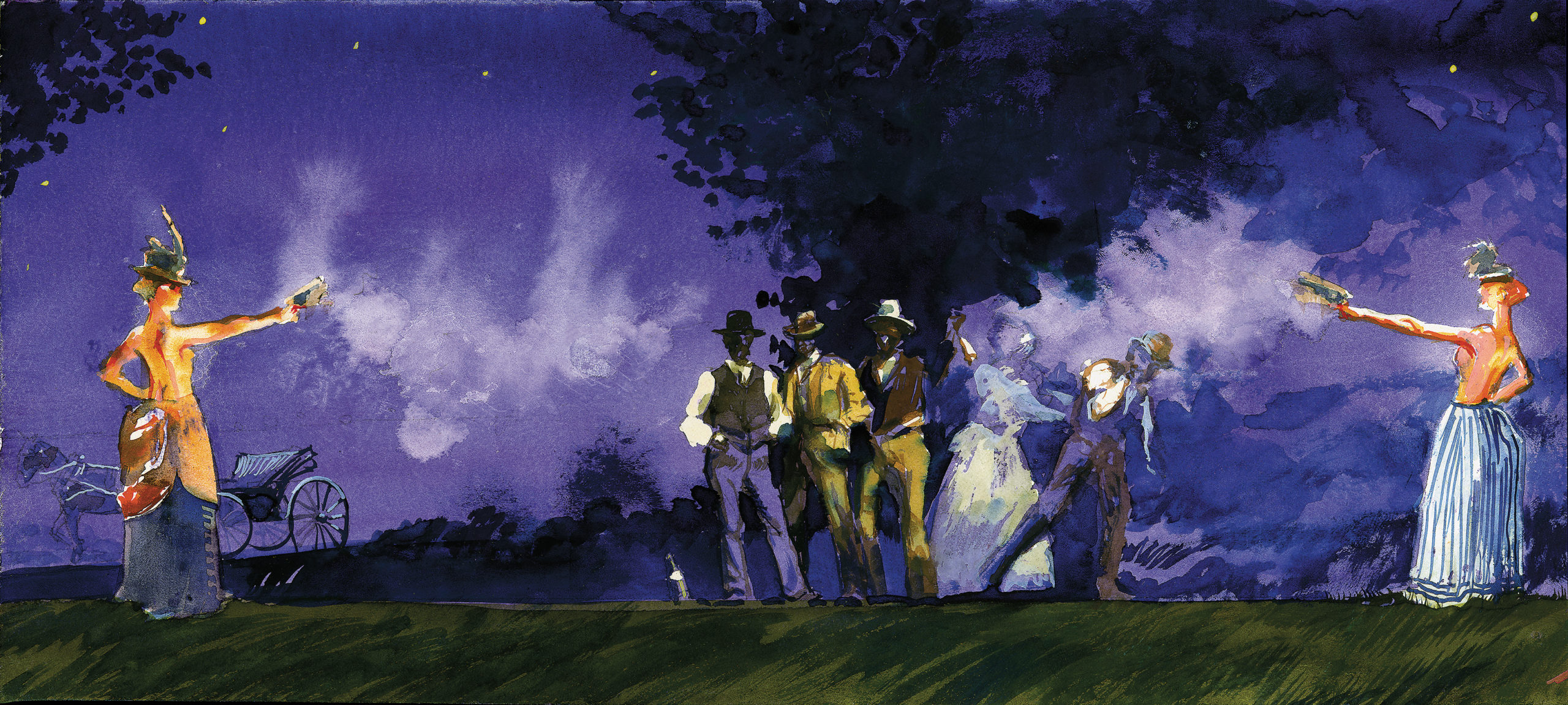
Great story, but there’s one problem: It didn’t happen.
Here’s the real story: A half-dozen of the “sporting crowd” are celebrating Cort’s stunning win against the noted Sam Doherty in a 125-yard foot race. With at least $2,000 in winnings (which Mattie had personally bet on Cort), the revelry begins in earnest.
By evening, Cort, Mattie, Katie, her “friend” Sam and possibly two others have ended up on the banks of the South Platte River to drink at the spot that the Rocky Mountain News bemoans is a “resort for fast men and for fast women.”
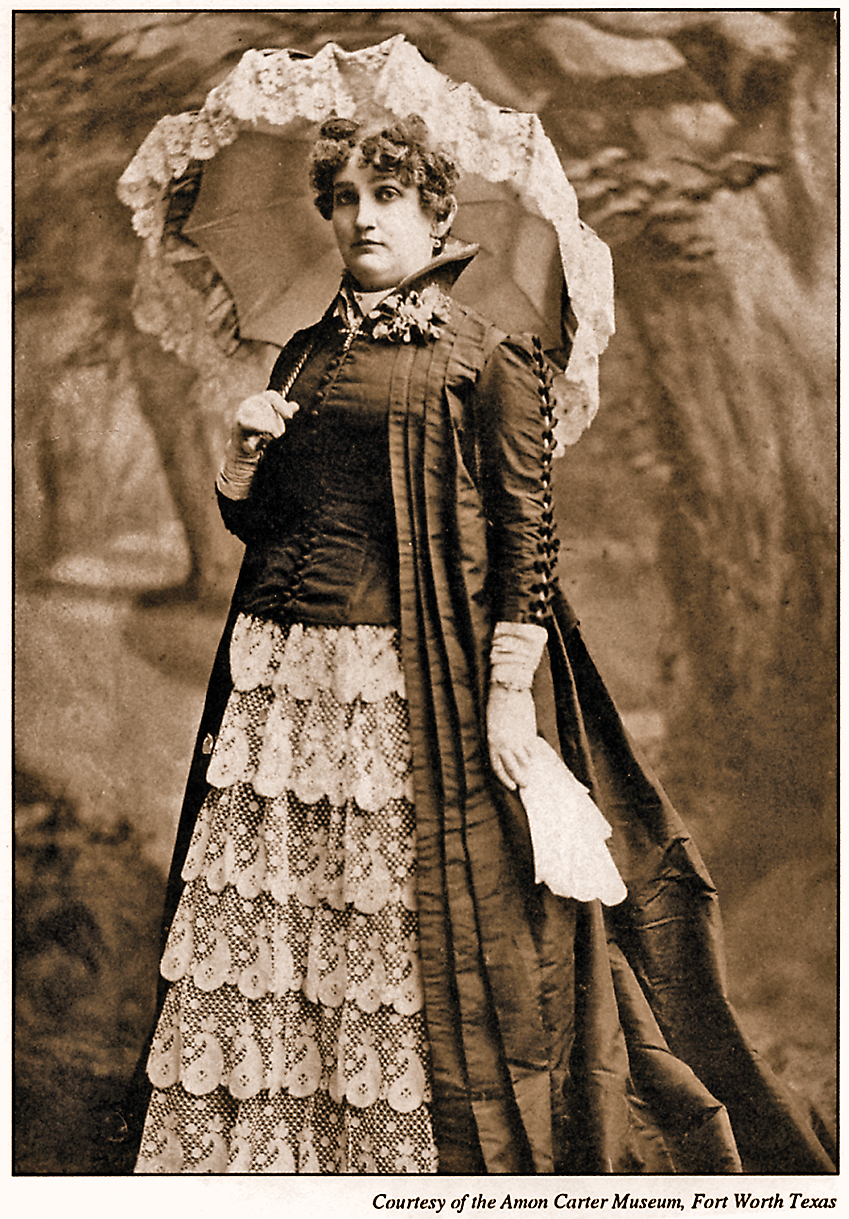
– True West Archives –
Although the cause is unknown, an argument ensues between Mattie and Katie, whereupon Cort steps between the two and punches Katie in the face, knocking her down. Sam tries to protect Katie from further attack, but he is decked. When Katie attempts to fight her assailant, she’s knocked down a second time. A kick in the face breaks her nose. In the melee, Cort pulls a pistol, which someone jostles loose from his grip, and it falls in the grass.
The fight breaks up, and the bleeding, dishevelled combatants stagger to their respective carriages and head toward the city limits. Beyond Olympic Park, a carriage draws up beside Cort’s carriage. A shot is then fired, and Mattie’s man is grazed in the neck. Cort survives—end of story.
According to popular belief, the assailant’s carriage contains Katie and Sam. The shot is said to be fired from the pistol that Cort dropped in the grass.
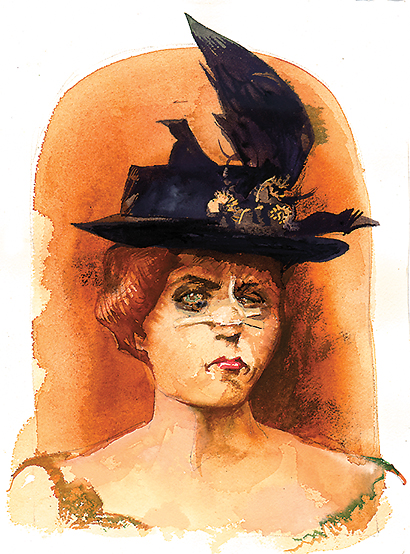
So where did the “naked” duel story come from?
Two newspapers reported the park altercation: The Times and Rocky Mountain News. Although the two reports are specific about what happened (no duel), when referring to the opposing sides, one paper states the periphery partisans are “seconds.”
In 1939, Forbes Parkhill will write a book titled The Wildest of the West. While researching, he pounces on the word “seconds,” which is often applied to duels. (One who assists or supports another in a duel is a “second.”)
Colorado Heritage editor Clark Secrest says, “Every year the Rocky Mountain News publishes the Mattie Silks duel story, and every year we write to them that it never happened, and every year they run a retraction. The story will probably never die.”
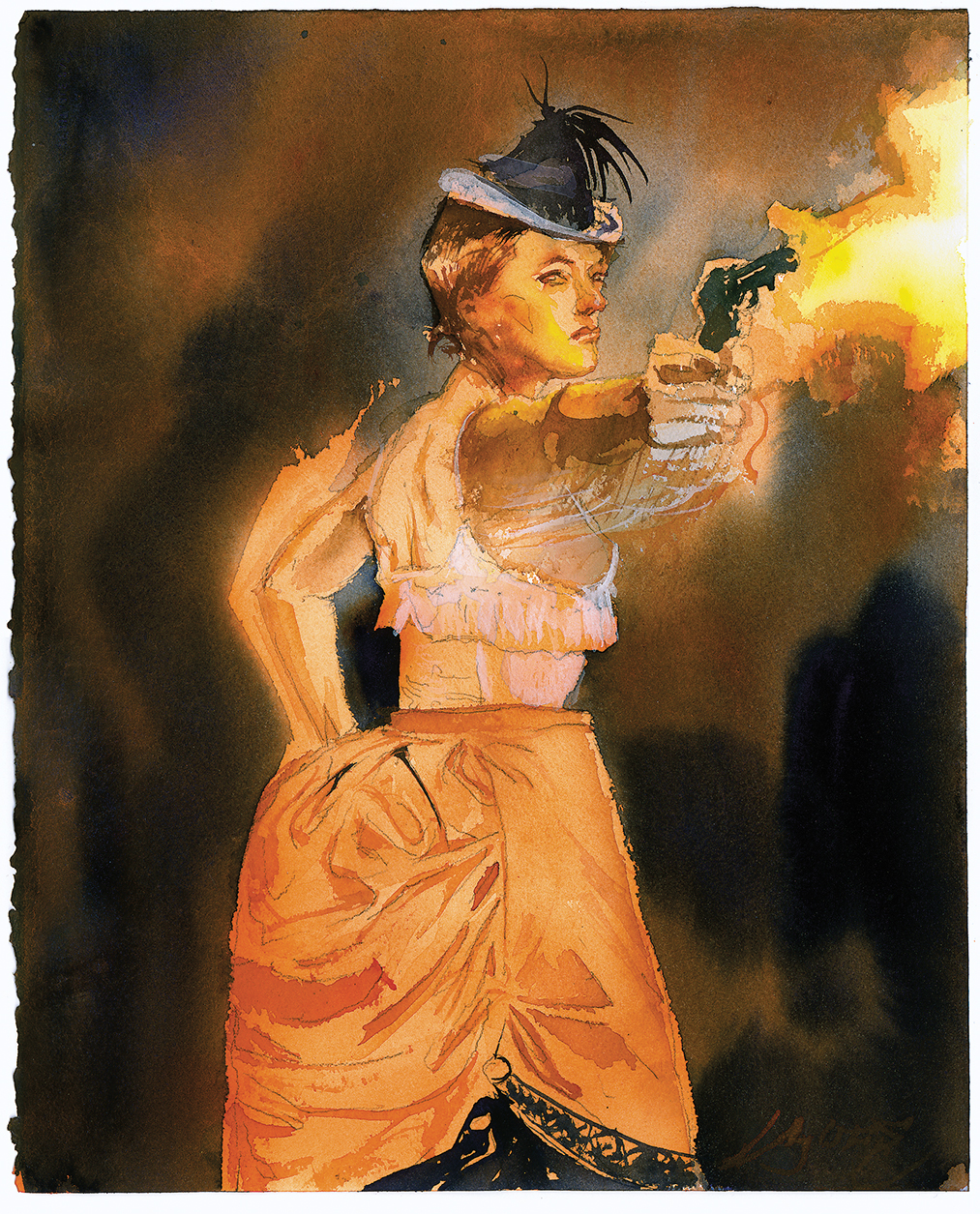
Aftermath: Odds & Ends
Katie Fulton left Denver on the next train bound for Kansas City, but she soon returned. On September 3, 1877, she had another confrontation with Mattie Silks, who decked Katie once again, reinjuring her nose. After the fight, Madam Fulton left for good.
The altercation took place at Olympic Park (also called Denver Park), which is today called Confluence Park. The park now has extensive bike paths and picnic areas.
Mattie Silks and Corteze Thomson (various writers misspell it as “Thompson”) had a stormy union, but she stuck with him for 30 years. By all accounts, he was a no-good drunk.
Cort continued to race, although he was arrested for throwing a foot race in August 1880. (Perhaps his legs were beginning to deteriorate.) Mattie supported him through several of her fortunes and periodically sent him to dry out at a cattle ranch she owned near Wray, Colorado. He died in a Wray hotel on April 10, 1900.
Recommended: Hell’s Belles: Prostit-ution, Vice and Crime in Early Denver by Clark Secrest, published by the University Press of Colorado.

